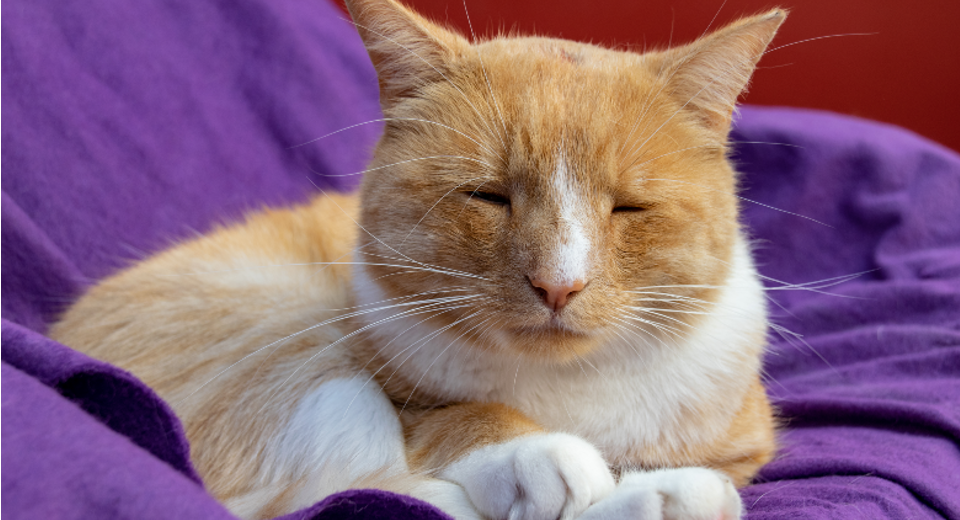
September is Animal Pain Awareness Month, a campaign by the International Veterinary Academy of Pain Management (IVAPM) to help pet parents identify pain in their companion animals. For Heaven at Home Pet Hospice, every month is pain awareness month, because the compassionate management of pain can improve an animal’s quality of life and prevent premature euthanasia.
The practice of pain management in cats can be challenging due to their wily nature.
“Cats are particularly adept at masking injury and illness because they instinctively hide signs of weakness from potential predators. They’re hard-wired for survival,” said Dr. Laurie Brush, founder of Heaven at Home Pet Hospice. “Unfortunately, as a result, research has shown they are under-treated for painful conditions.”
The Heaven at Home team uses a pain assessment tool developed by a team of researchers at the University of Montreal’s Veterinary Teaching Hospital called the Feline Grimace Scale (FGS). This system of pain identification measures ear position, orbital tightening, muzzle tension, whisker position and head position. Pet parents can be taught to use the FGS at home.
Sources of pain in cats include arthritis, dental problems, urinary tract infections, bone disease, and cancer. There are a wide range of treatments to mitigate pain, including modifications to their environments, medications, monoclonal antibodies, and more.
IVAPM Pain Checklist for Cats
- Reluctance or difficulty jumping up or down from counters, furniture, etc.
- Difficulty or avoiding going up or down stairs
- Restlessness or difficulty finding a comfortable position
- Vocalizing (purring, or hissing) when touched or moving
- Decreased appetite
- Less playful with less desire to interact with people or animals
- Excessive licking, biting or scratching a body part
- Sleeping in an unusual position or unusual location
- Unusual aggression when approached or touched (biting, hissing, ears pinned back)
- Changes in eye expression (staring, enlarged pupils, vacant look, or squinting)
- Stopped using or has difficulty getting in or out of litter box
- Stopped or reduced grooming
If your senior kitty shows any of these signs of pain, it’s time for an evaluation by your routine care veterinarian or a pain management consultation. Your stoic kitty does not need to suffer in silence.
To learn the FPS system, download a guide in the Tools Section.
